The Darién Gap migrant crossing
Record numbers hike deadly jungle pass from South America into Panama
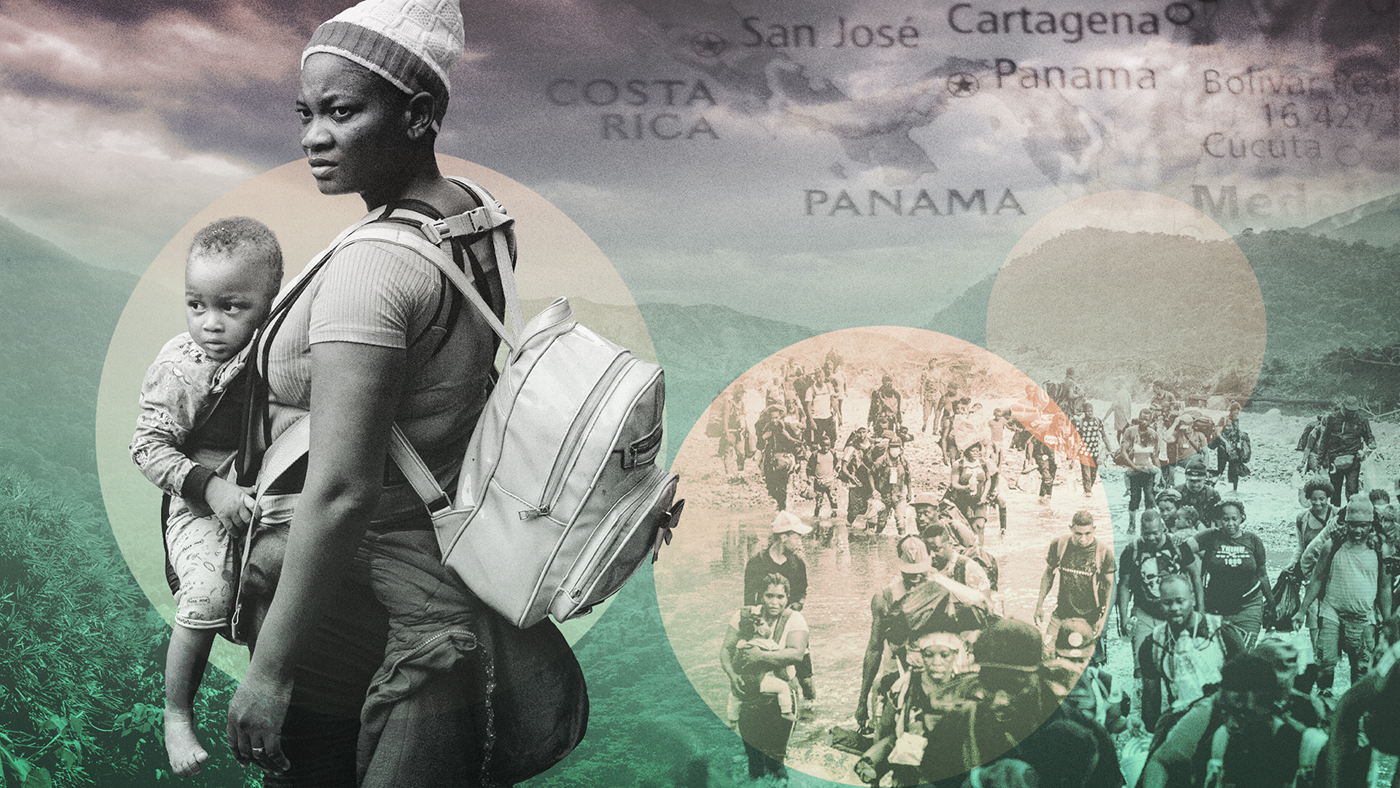
A free daily email with the biggest news stories of the day – and the best features from TheWeek.com
You are now subscribed
Your newsletter sign-up was successful
A US-backed campaign between Panama and Colombia aims to stop migrants crossing the Darién Gap from South into Central America, as UN groups warn that the number of people attempting the journey could rise to a record 400,000 this year.
More than 100,000 people have already crossed the 66-mile stretch of jungle between Colombia and Panama this year, the UN High Commission for Refugees and International Organization for Migration (IOM) said in a joint statement on 14 April: six times more than in the same period in 2022, according to Panamanian government data.
By the current trajectory, the number will reach 400,000 people this year, compared with last year when 250,000 migrants and refugees “risked their lives crossing the Darién”, the organisations said.
The Week
Escape your echo chamber. Get the facts behind the news, plus analysis from multiple perspectives.

Sign up for The Week's Free Newsletters
From our morning news briefing to a weekly Good News Newsletter, get the best of The Week delivered directly to your inbox.
From our morning news briefing to a weekly Good News Newsletter, get the best of The Week delivered directly to your inbox.
What is the Darién Gap?
The tapón del Darién (plug of Darién) is a break in the Pan-American Highway, the network of roads that spans the continents of the Americas, from Alaska down to the southernmost point of Argentina.
The only overland route connecting South and Central America, it is the world’s longest motorable road, according to the Guinness World Records – but it is not all technically drivable, as there is a break of about 106km (66 miles), across the border between northwest Colombia and southeast Panama. The name derives from Panama’s region of Darién.
Attempts to complete construction in the 1970s failed, and further plans have been halted by environmental concerns, as well as exceptionally difficult terrain in what is one of the world’s rainiest areas, where the governments of Colombia and Panama have little control.
The “remote, roadless, mountainous rainforest” is a “minefield of lethal snakes, slimy rock and erratic riverbeds, that challenges most adults”, said CNN, which sent a team of journalists to hike the gap in February, who encountered dead bodies along the way.
A free daily email with the biggest news stories of the day – and the best features from TheWeek.com
The Colombian cartel controlling the route “is making millions off a highly organised smuggling business”, the report said, charging at least $400 per person to enter the pass.
The stories from people who survived “attest to the horrors of this journey”, said Giuseppe Loprete, the IOM’s chief of mission in Panama. “Many have lost their lives or gone missing, while others come out of it with significant health issues.”
According to the IOM’s Missing Migrants Project, 36 people died in the gap last year, although “anecdotal reports” indicate that many deaths go unreported, “so this figure presents only a small fraction of the true number of lives lost”.
Why are numbers increasing?
The number of people entering Panama via the gap last year was almost double that of 2021, said the IOM, and roughly 20 times the annual average from 2010 to 2020.
There has been a seven-fold increase in the number of children crossing, said a Unicef report in March, with 9,700 minors arriving in Panama so far this year. “Children now represent one in five migrants walking through the Darién jungle”, it said. The previous report last year said that half the children crossing were under five years old.
Deteriorating conditions in several Latin American countries, especially Venezuela, have contributed to the record numbers. More than half of those who crossed last year (150,327) were Venezuelan nationals, a 50-fold increase since 2021.
The socioeconomic crisis in the country was exacerbated by the pandemic and US sanctions against President Nicolás Maduro, contributing to extreme rates of hunger, poverty and violence.
In October, the US blocked Venezuelans from entering the US “without authorisation” under a pandemic-era restriction called Title 42, which suspended the right to claim asylum at the US-Mexico border. Title 42 is set to expire on 11 May, which the US fears will increase the surge in migration.
Chinese citizens are also making the journey, with Panamanian data recording 913 arrivals in January this year, according to The Guardian: the fourth-largest national group.
Migrants told the paper that increasing repression had pushed people into “runology”, or runxue, taking advantage of the relaxation of border controls in December to flee China.
What is the new plan?
People attempting the five-day hike face dangerous terrain, deadly animals, disease, exploitation and violence. Most come from Venezuela, Ecuador and Haiti, and continue through Central America to the US, the agencies said.
The 60-day plan hopes to “prevent the risk to human life, disrupt transnational criminal organisations, and preserve the vital rainforest”, said the statement from Colombia, Panama and the US on 12 April. The countries will offer “new lawful and flexible pathways”, but did not explain what those would be.
The plan “will likely fail”, migration experts told The Guardian, and push “desperate people further into the hands of merciless people-trafficking”.
Harriet Marsden is a senior staff writer and podcast panellist for The Week, covering world news and writing the weekly Global Digest newsletter. Before joining the site in 2023, she was a freelance journalist for seven years, working for The Guardian, The Times and The Independent among others, and regularly appearing on radio shows. In 2021, she was awarded the “journalist-at-large” fellowship by the Local Trust charity, and spent a year travelling independently to some of England’s most deprived areas to write about community activism. She has a master’s in international journalism from City University, and has also worked in Bolivia, Colombia and Spain.
-
 The environmental cost of GLP-1s
The environmental cost of GLP-1sThe explainer Producing the drugs is a dirty process
-
 Nuuk becomes ground zero for Greenland’s diplomatic straits
Nuuk becomes ground zero for Greenland’s diplomatic straitsIN THE SPOTLIGHT A flurry of new consular activity in the remote Danish protectorate shows how important Greenland has become to Europeans’ anxiety about American imperialism
-
 ‘This is something that happens all too often’
‘This is something that happens all too often’Instant Opinion Opinion, comment and editorials of the day
-
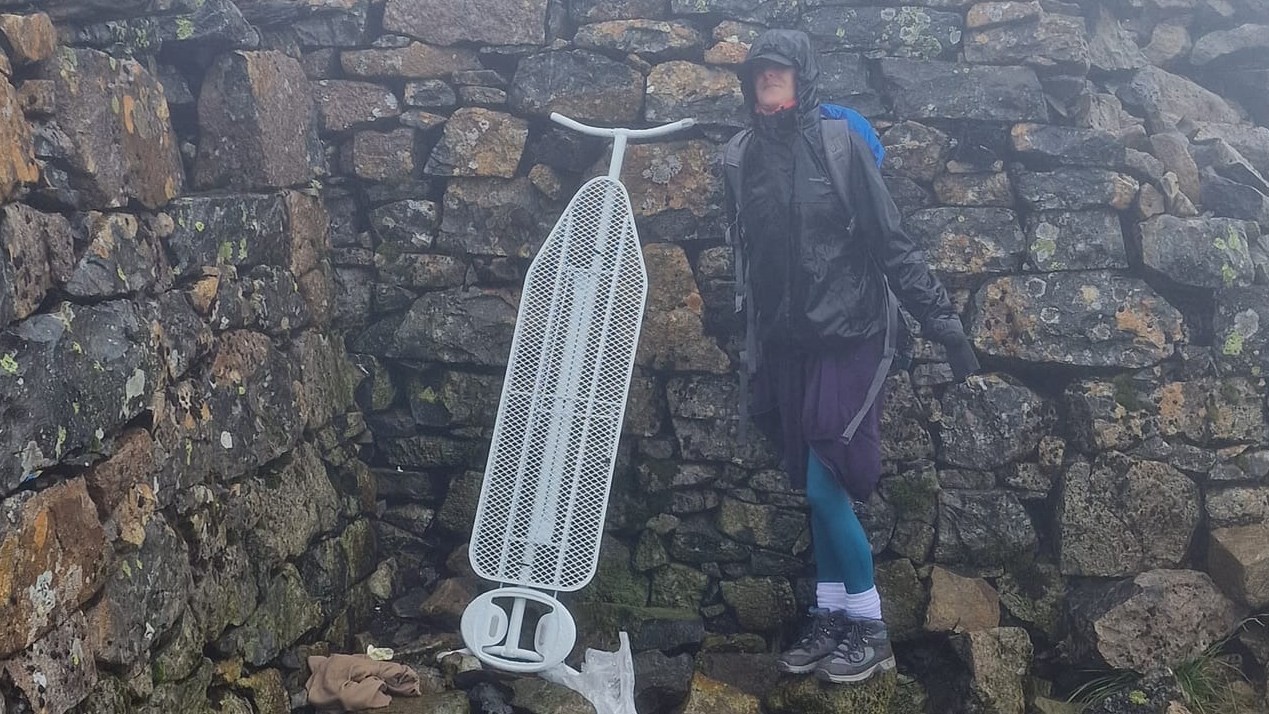 'Extreme ironing' blamed for Ben Nevis board
'Extreme ironing' blamed for Ben Nevis boardTall Tales And other stories from the stranger side of life
-
 Inside Venezuela’s oil corruption scandal
Inside Venezuela’s oil corruption scandalfeature Private planes and luxury cars seized as £17bn allegedly goes missing from state-run company
-
 ‘It’s Nigel Farage setting the agenda’
‘It’s Nigel Farage setting the agenda’Instant Opinion Your digest of analysis from the British and international press
-
 ‘The future of UK-EU relations depends on the fate of Boris Johnson’
‘The future of UK-EU relations depends on the fate of Boris Johnson’Instant Opinion Your digest of analysis from the British and international press
-
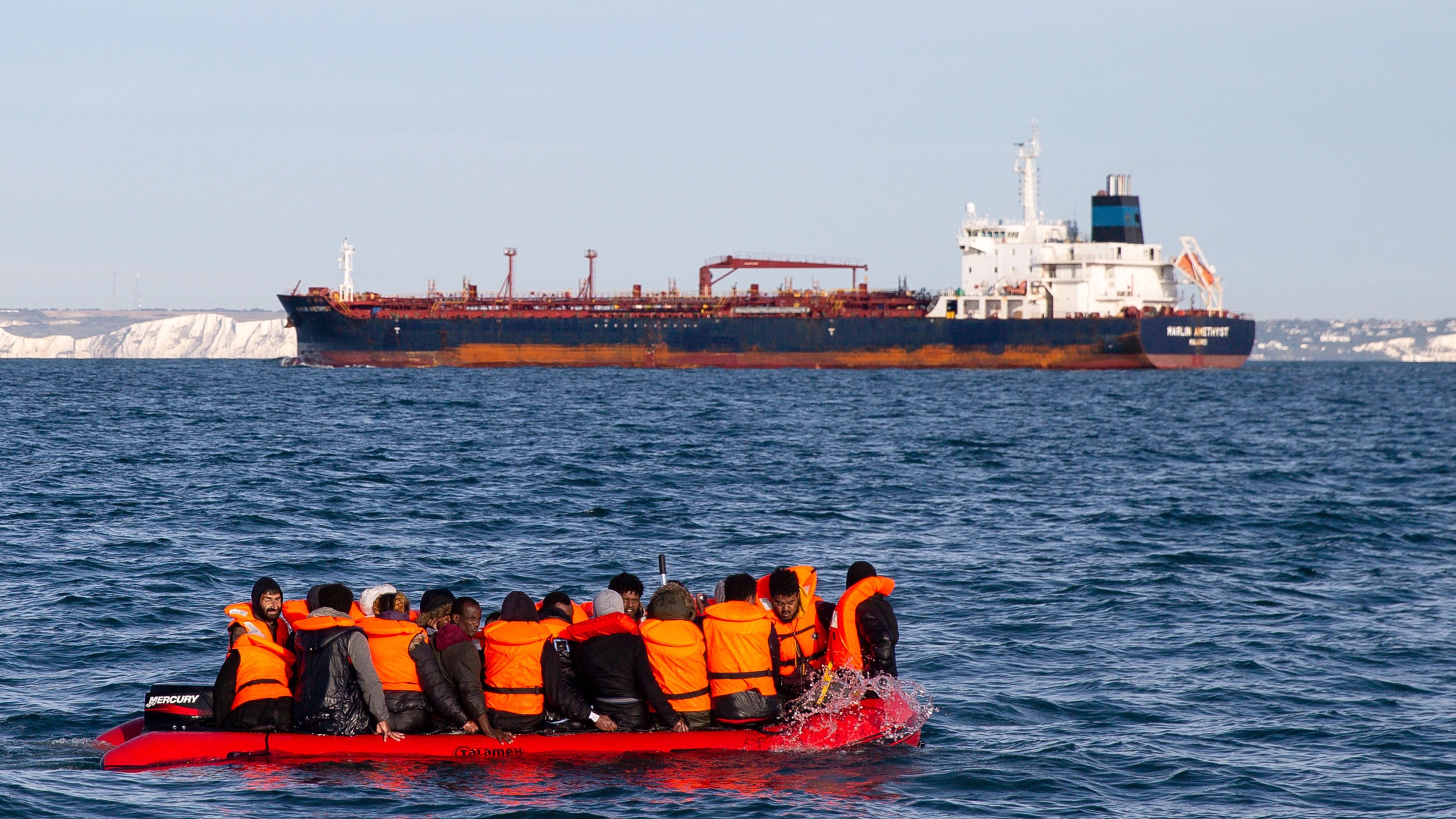 ‘Why are people so desperate to reach the UK that they will step into dinghies?’
‘Why are people so desperate to reach the UK that they will step into dinghies?’Instant Opinion Your digest of analysis and commentary from the British and international press
-
 The Week Unwrapped podcast: Sporting genes, Colombia and orcas
The Week Unwrapped podcast: Sporting genes, Colombia and orcasIn Depth What does Caster Semenya’s latest defeat say about gender? Is Colombia slipping into conflict? And are killer whales turning against us?
-
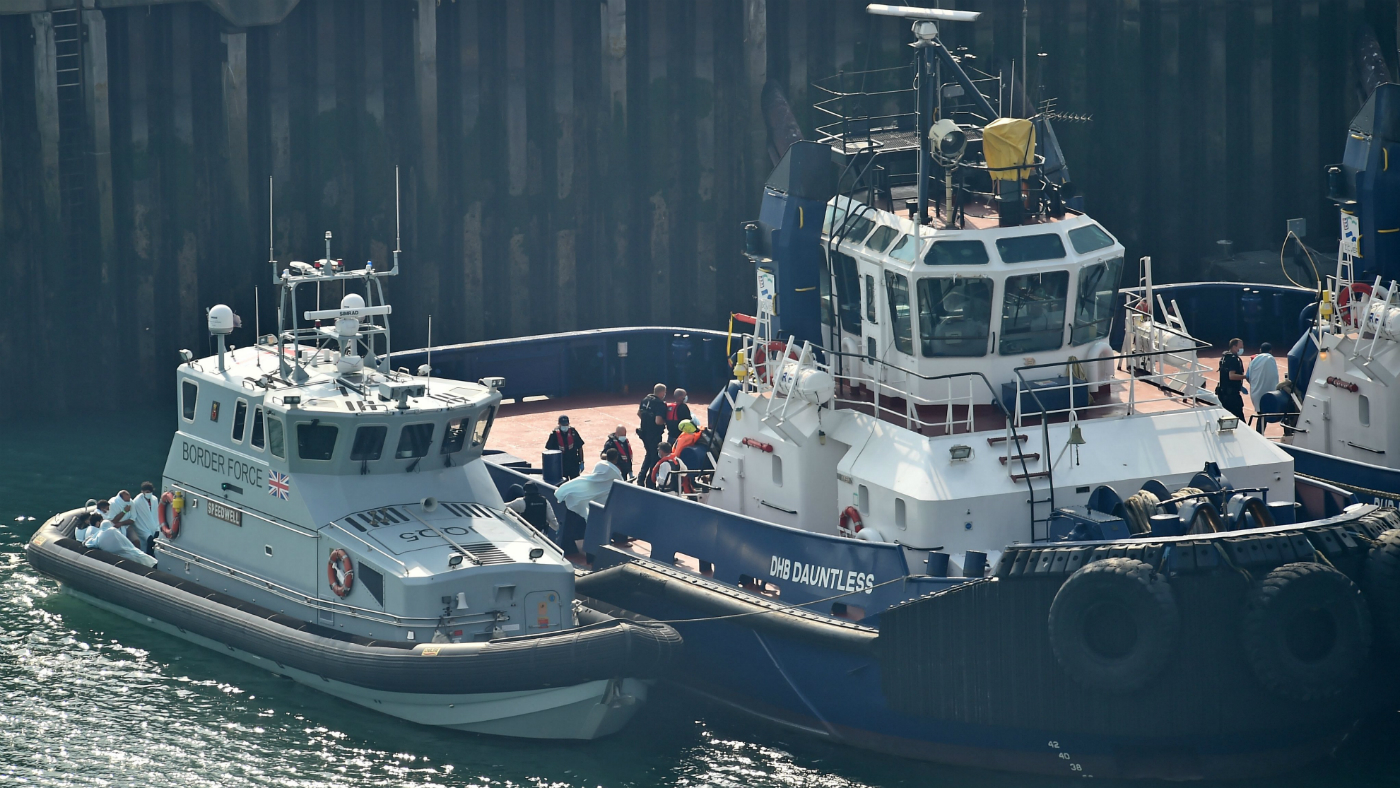 Why everybody’s talking about Home Office failings on immigration
Why everybody’s talking about Home Office failings on immigrationIn Depth House of Commons inquiry launched after record number of migrants attempted to reach UK shores
-
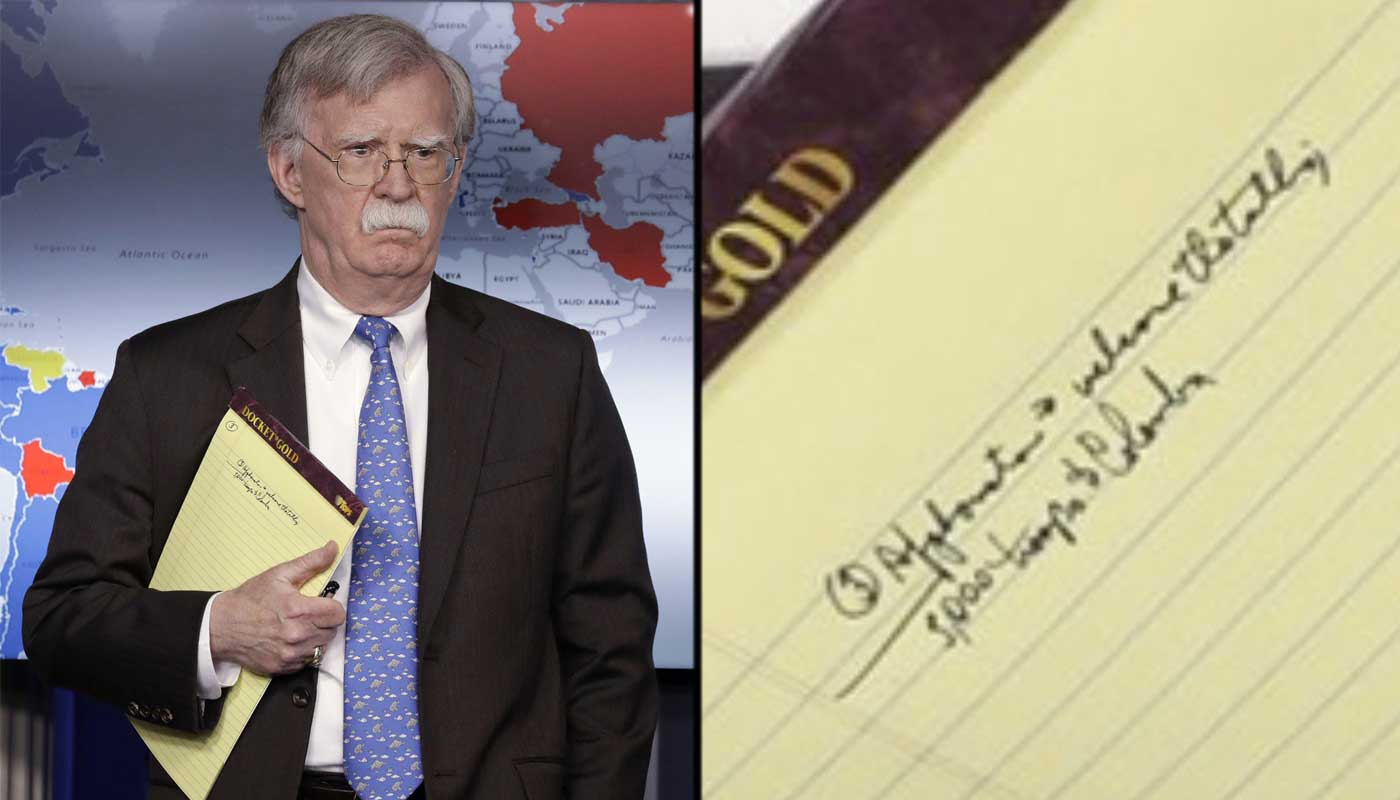 US announces moves against Venezuela
US announces moves against VenezuelaSpeed Read National Security Advisor piles pressure on Maduro, while possibly also inadvertently revealing plans to send US troops to Colombia